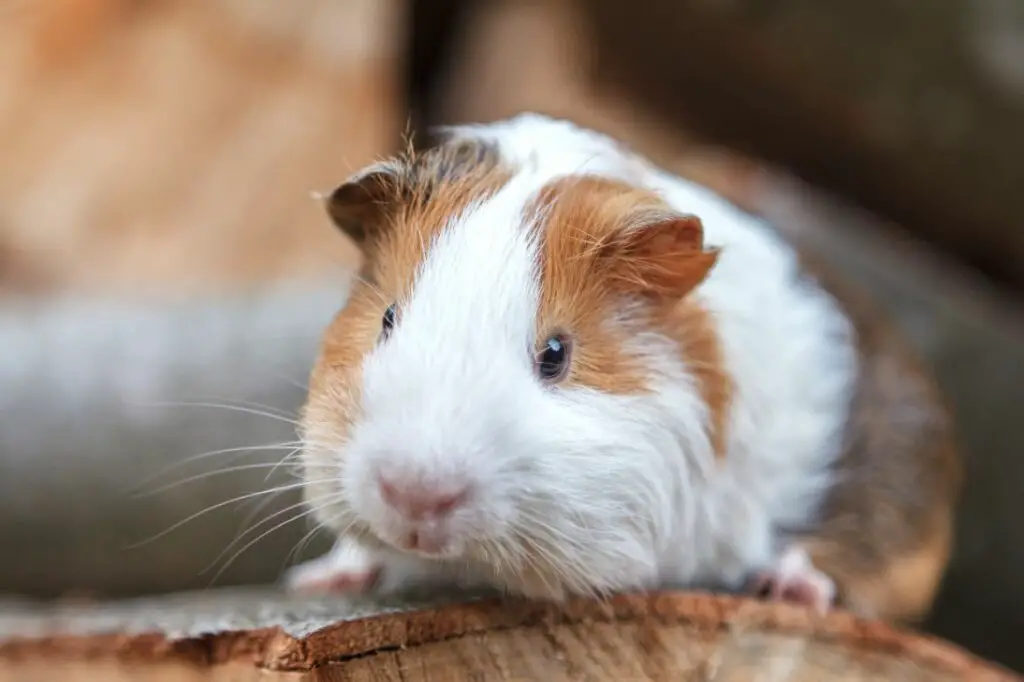Guinea pigs are one of the most beloved pets in the world. They are cute, cuddly, and easy to take care of. However, as winter approaches, many pet owners wonder if their guinea pig will hibernate.
In this blog post, we will explore the truth behind this myth and provide you with essential information to keep your guinea pig safe and healthy during the winter months.

Understanding the Basics of Hibernation
What is Hibernation?
Hibernation is a state of deep sleep that some animals go into during the winter months. This deep sleep allows them to conserve energy and survive the harsh winter conditions.
During hibernation, an animal’s heart rate, breathing, and metabolism slow down, and their body temperature drops significantly.
How Do Animals Hibernate?
Different animals hibernate in different ways. Some animals, like bears, will find a warm shelter and sleep for months without waking up.
Other animals, like chipmunks, will wake up periodically to eat and drink before going back to sleep. Some animals, like birds, don’t hibernate at all but migrate to warmer climates during the winter months.
Can Guinea Pigs Hibernate?
Do Guinea Pigs Naturally Hibernate?
The short answer is no. Guinea pigs do not naturally hibernate. Unlike other animals that hibernate, guinea pigs are not equipped to survive the winter months without food and water. Their bodies are not designed to handle such a drastic drop in temperature and metabolism.
What Are the Signs of Guinea Pig Hibernation?
Even though guinea pigs do not naturally hibernate, they can still go into a state of torpor, which is similar to hibernation. The signs of guinea pig torpor include a drop in body temperature, lethargy, and loss of appetite. If you notice these signs in your guinea pig, it’s essential to act quickly and get them warm and start feeding them.
What Causes Guinea Pig Hibernation?
Guinea pig torpor is usually caused by a drop in temperature. Guinea pigs are sensitive to cold temperatures and can get hypothermia if they are exposed to cold air for too long. Hypothermia can lead to torpor, which can be life-threatening if not treated quickly.
How to Prevent Guinea Pig Torpor
What Are the Risks of Guinea Pig Torpor?
The risks of guinea pig torpor include hypothermia, dehydration, and starvation. If a guinea pig goes into torpor, it can be challenging to get them to wake up and start eating and drinking again. This can lead to severe health problems and even death.
How to Keep Your Guinea Pig Safe and Healthy During Winter?
The best way to keep your guinea pig safe and healthy during the winter months is to keep them warm and dry. You can do this by providing them with a warm shelter, such as a heated cage or a box filled with warm bedding.
You should also make sure that they have access to plenty of food and water, as their bodies need more energy to stay warm during the winter.
What Are the Best Ways to Keep Your Guinea Pig Warm?
There are many ways to keep your guinea pig warm during the winter months. One of the best ways is to provide them with a heated cage or a box filled with warm bedding.
You can also use a heat lamp or a hot water bottle to keep them warm. However, it’s essential to make sure that the heat source is not too hot and that your guinea pig cannot chew on any cords or wires.
Conclusion: The Truth About Guinea Pig Hibernation
While guinea pigs do not naturally hibernate, they can go into a state of torpor if exposed to cold temperatures for too long. It’s essential to keep your guinea pig warm and dry during the winter months to prevent torpor and other health problems.
The most important takeaway for guinea pig owners is to keep their pets warm and dry during the winter months. This means providing them with a warm shelter, plenty of food and water, and avoiding exposure to cold temperatures. By following these simple steps, you can keep your guinea pig safe and healthy all winter long.
- How Long Do American Eskimo Dogs Live? Important Factors and Care Tips - September 29, 2023
- Do American Bulldogs Need Grooming? Essential Tips and Care Guidelines - September 29, 2023
- Do Bengal Cats Enjoy Playing? Essential Tips for Keeping Them Active - September 29, 2023